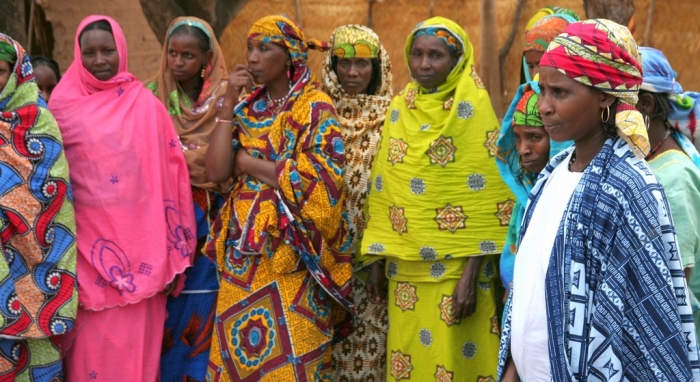The African Charter, the Maputo Protocol, the Convention on the Elimination of All Forms of Discrimination Against Women(CEDAW) and other regional and international instruments, provide for mechanisms to address violence against women, gender discrimination and structural inequality. However, domestication and implementation in many African countries are still insufficient, and women continue to be victims of various harmful practices, especially when they find themselves in situations of vulnerability.
With the aim of shedding light on these concerns, the African Commission convened a ‘Joint Panel on Violence against Women in Vulnerable Situations’ on 20 April. In particular, the three panelists addressed, respectively, the sexual and reproductive health rights of women and girls in conflict zones and in humanitarian settings, the vulnerability of women on death row and the impact of Covid-19 on detained women.
In Nigerian camps, discrimination as well as gender-based violence and sexual exploitation are common, and there is no accountability for such violations. As explained by the panelist, survivors are typically prevented from reporting episodes of sexual violence due to fear of reprisals. Furthermore, availability, accessibility and acceptability of quality sexual and reproductive health services are lacking in Nigeria and in other African states which are hosting women and girls affected by conflict.
Women sentenced to the death penalty face various forms of discrimination in the justice system, during the trial and even when they are on death row. These are often women who have endured years of abuse, including sexual violence and exploitation, which eventually led them to the commission of the crime. Many African courts have consistently failed to recognise the abuses that women have been subjected to as relevant and mitigating evidence for delivering the sentence. In countries where the death penalty is mandatory in murder cases, judges have no discretion to consider the facts leading up to the offense, which represents a great form of discrimination.
Women in prison or pre-trial detention are also discriminated and exposed to violence. In addition to this, the Covid-19 pandemic has exacerbated pre-existing concerns as regards to women in places of detention. Where actions to prevent the spread of the virus have been taken, they have generally been inconsistent, without proper consideration of how they should be tailored to meet the specific needs of women, thus increasing the chance of contracting the virus.
As highlighted in the discussion, women in Africa continue to be exposed to various forms of violence, and the risk is amplified in situations of vulnerability. States Parties to the African Charter should commit to truly uphold the rights enshrined in international and regional human rights instruments and ensure that all women are free from violence, discrimination and inequality.
Watch the panel discussion here.




